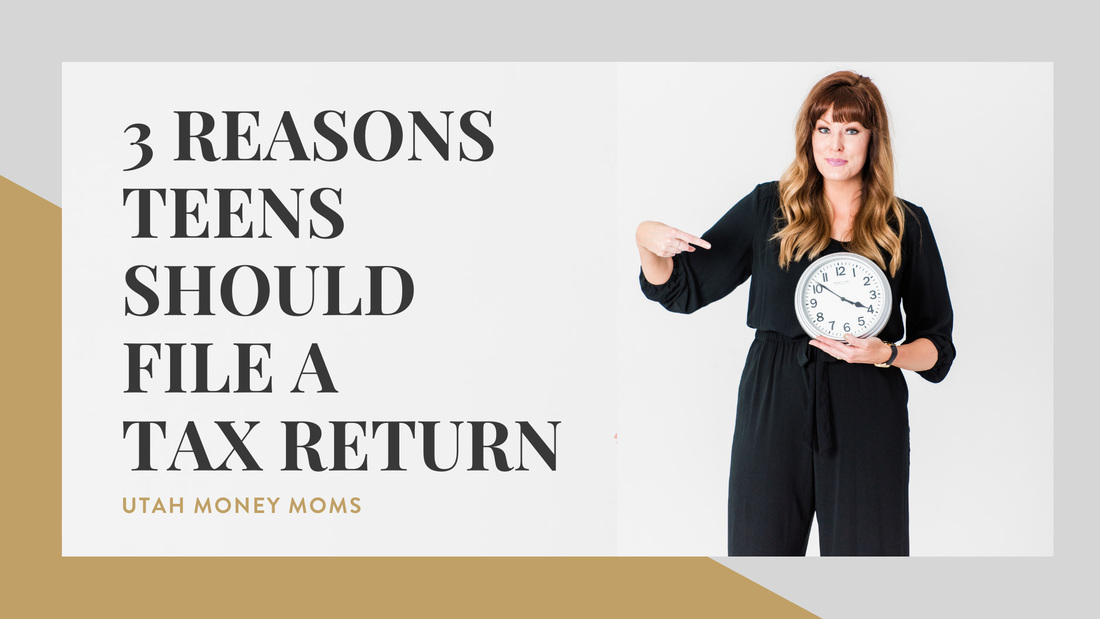|
Amanda H. Christensen, AFC, Extension Associate Professor Utah Money Moms Editor  Is it really worth the hassle to sit down with your teen and fill out a 1040 Form in addition to worrying about your own taxes this time of year? Y.E.S. Today I'm sharing three reasons why the benefits of teenagers filing a tax return for their seasonal income working summer or holiday jobs is well worth the minimal hassle. Here's some need-to-know personal finance knowledge if you're the parent of a teen. When do Teens Have to File a Return? Americans are legally required to file a federal return when they make at least the standard deduction for the 2021 tax year which is $12,550. Earn less than that, as many teenagers do, and you don’t have to file.
File Anyway, Even if it isn't Required. Here are three key reasons to have your teen file anyway even if it's not required:
BONUS TIP 1: If you’re at least 18 years old you can start a Roth IRA in your own name. A little lesser-known fact is that parents can set up beneficiary Roth accounts for younger teens. Kids of any age van contribute to a Roth, as long as they have and can show (this is where the tax return comes in) earned income. Gifted money does not qualify. BONUS TIP 2: The Free Application for Federal Student Aid, or FAFSA, doesn’t consider money that’s in a Roth IRA as available to pay for college expenses. So, it will not count against any financial aid award. BONUS TIP 3: You can always withdraw your own contributions without penalty. This might be a concern for some people who feel like this money would be tied up for a very long time. however, the longer you leave money to grow, the more money you'll have in the long run...by a long shot! Keep reading! FINAL TAKEAWAY. It’s very feasible that an individual who started contributing to a Roth IRA in their teens, and contributed even just a minimal amount each month, would have over $300 dollars waiting for them in that investment account in retirement (age 59 ½ or later). Click here for a super cool chart that illustrates the benefits of the time value of money and investing early. This is a fabulous opportunity to talk real-life money smarts with your kids. Teaching Tip: Take your teaching opportunity to the next level and find someone in that retirement age and stage of life who's willing to share how their saving and investing habits have paid off. You may also ask them if there's anything they would have done differently with regards to intentional financial efforts to enjoy life in retirement. Sources: Money.com, IRS.gov
0 Comments
Your comment will be posted after it is approved.
Leave a Reply. |
TAKE A FREE CLASS!Host a ClassamandaSharing real-life money smarts to help you stay on track with financial goals while still enjoying life! Follow the fun on InstagramAS SEEN ONawardsBest of State 2022 & 2023: Personal Finance Education
1st Place National Award in Social Media Education from the National Extension Association of Family and Consumer Sciences
Gold Award in Blog Site category at the 7th annual Education Digital Marketing Awards.
Platinum Award in Digital Media, Web Design category at the International Marketing and Communication Awards.
Categories
All
|








